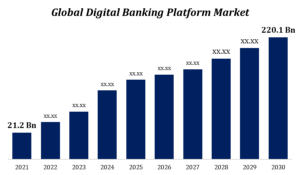Open Banking Revolution: Transforming Traditional Banking with Fintech APIs
The financial industry is undergoing a transformative revolution fueled by the concept of open banking and the integration of fintech Application Programming Interfaces (APIs). Open banking, a regulatory-driven initiative, empowers consumers by allowing third-party financial service providers to access banking data securely. This innovation is reshaping the traditional banking landscape, fostering competition, enhancing customer experiences, and driving the growth of innovative fintech solutions. In this blog, we will explore the open banking revolution, delve into the role of fintech APIs, and discuss the far-reaching implications of this paradigm shift.
Understanding Open Banking:
- Data Sharing and Collaboration: Open banking mandates banks to share customer data securely with authorized third-party providers. This collaboration enables fintech companies to develop innovative solutions that leverage financial data.
- Empowering Consumer Choice: Consumers gain control over their financial information, allowing them to choose services tailored to their needs and switch between providers more seamlessly.
- Enhancing Competition: Open banking promotes healthy competition by allowing new entrants, such as fintech startups, to offer innovative products and services traditionally provided by banks.
The Role of Fintech APIs:
- Seamless Integration: Fintech APIs facilitate the secure and seamless exchange of data between banks and third-party developers. This integration enables the creation of new financial products and services.
- Innovation Catalyst: Fintech APIs serve as building blocks for developers to create a wide range of applications, from budgeting tools to investment platforms and payment solutions.
- Personalized Customer Experiences: APIs enable the development of personalized financial solutions that cater to individual customer preferences and behaviors.
Implications and Benefits of the Open Banking Revolution:
- Enhanced Financial Services: Open banking allows for the development of personalized financial management tools, real-time budgeting apps, and tailored investment portfolios.
- Inclusion and Accessibility: The availability of data through APIs fosters financial inclusion by enabling the creation of services for underserved populations.
- New Revenue Streams: Banks can monetize their APIs by partnering with fintech firms, generating additional revenue streams and strengthening customer relationships.
- Security and Privacy Concerns: While open banking offers immense benefits, data security and customer privacy remain critical considerations. Regulatory frameworks ensure data protection and consent.
- Global Impact: Open banking initiatives are emerging worldwide, transforming the financial industry on a global scale and encouraging cross-border innovation.
The open banking revolution, driven by the integration of fintech APIs, is fundamentally reshaping the traditional banking landscape. This transformation offers a new era of customer-centric financial services, enabling personalized experiences, innovative solutions, and increased competition. As the fintech ecosystem continues to evolve, the collaboration between banks and fintech startups through APIs will drive the development of groundbreaking products and services that empower consumers and set the stage for a more dynamic, accessible, and inclusive financial future.
Top of Form


































